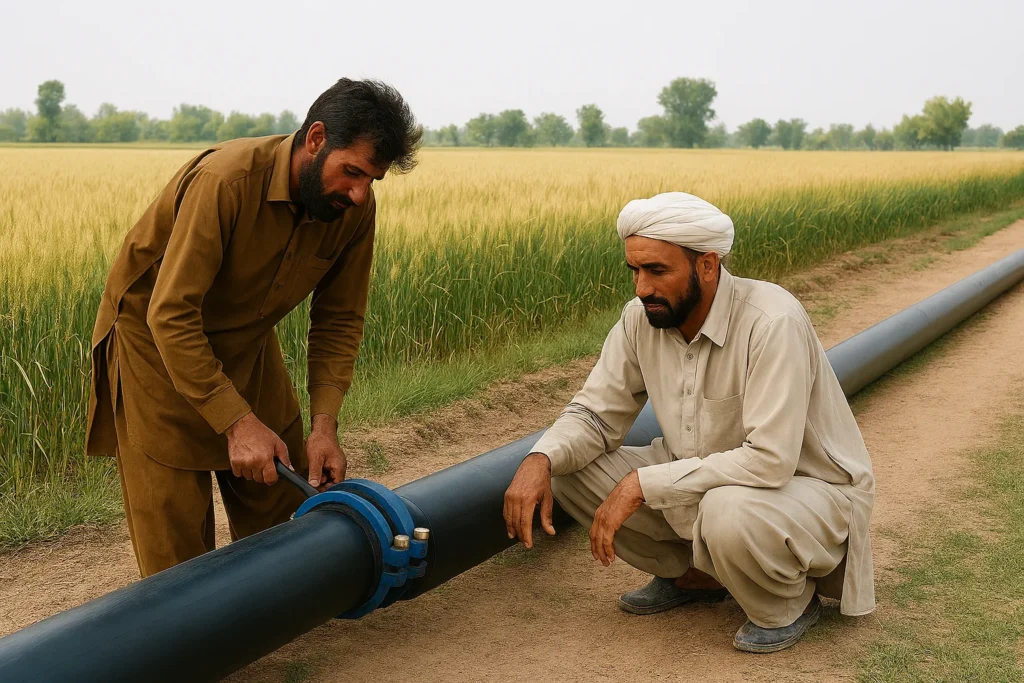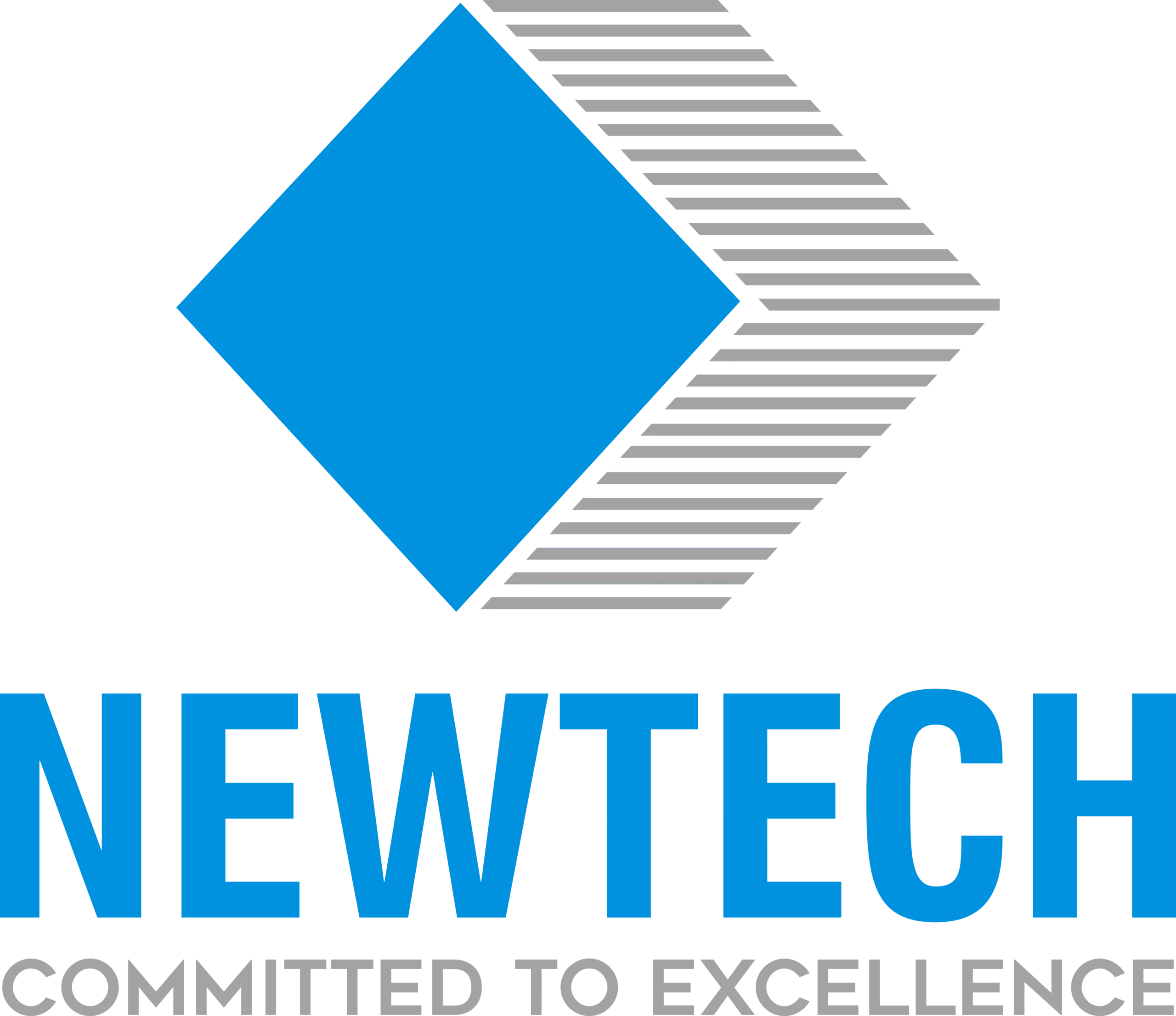Water is the lifeline of agriculture, and in Pakistan — where farming supports millions of livelihoods — efficient irrigation is essential. With changing climate patterns, water scarcity, and the need to improve crop yields, farmers are turning to modern solutions. One such solution is the HDPE irrigation water pipe. But why has it become so popular for agriculture across the country? Let’s explore.
What Is an HDPE Irrigation Water Pipe?
HDPE stands for High-Density Polyethylene, a strong, lightweight, and flexible plastic material. An HDPE irrigation water pipe is designed to transport water from the source to crops with minimal loss. Unlike metal or concrete pipes, HDPE does not rust, crack, or react with chemicals. Its smooth interior ensures an uninterrupted water flow, which is critical for consistent irrigation in fields.In Pakistan’s varied climates — from the hot plains of Punjab to the arid regions of Balochistan — HDPE pipes are adaptable, long-lasting, and reliable.
[showdpt instance=”5″]
Why Is HDPE the Preferred Choice for Agriculture in Pakistan?
Farmers across Pakistan are shifting from traditional piping systems to HDPE because:
- Durability – HDPE can withstand extreme weather, from scorching summers to freezing winters.
- Flexibility – It can be laid over uneven terrain without breaking.
- Leak-proof joints – Fusion welding prevents leaks, conserving water.
- Lightweight – Easy to transport and install, even in remote areas.
- Cost-effective – Low maintenance means long-term savings.
These advantages directly translate into better water efficiency, reduced costs, and higher crop yields.
How Does HDPE Irrigation Piping Help Conserve Water?
Water conservation is a critical challenge for Pakistani agriculture. HDPE pipes help by:
- Minimizing leakage – Strong joints keep water loss close to zero.
- Reducing evaporation – Enclosed piping delivers water directly to fields.
- Enabling drip and sprinkler systems – Supports modern irrigation methods that use less water.
- Preventing seepage – Unlike canals, HDPE pipes don’t absorb water into the ground before reaching crops.
For a country where agriculture consumes over 90% of water resources, this efficiency is a game-changer.
What Types of HDPE Irrigation Systems Are Common in Pakistan?
HDPE pipes are versatile and can be used in multiple irrigation methods:
- Surface Irrigation – Water flows through HDPE pipes to open channels.
- Sprinkler Irrigation – Pipes connect to sprinklers for even distribution over fields.
- Drip Irrigation – Delivers water directly to plant roots, reducing wastage.
- Flood Irrigation – Used for crops like rice that need large volumes of water.
This flexibility means farmers can choose the system that suits their crop type, soil conditions, and budget.
What Sizes of HDPE Irrigation Pipes Are Available in Pakistan?
Manufacturers in Pakistan offer HDPE irrigation pipes in various diameters and lengths to meet different farm needs:
- Small diameters (20mm – 63mm) – Ideal for drip irrigation and small-scale farming.
- Medium diameters (75mm – 200mm) – Suitable for sprinkler systems and medium farms.
- Large diameters (250mm – 500mm) – Used in large-scale canal replacement projects.
Pipes also come with different pressure ratings (PN ratings), such as PN6, PN10, and PN16, depending on water pressure requirements.
How Much Do HDPE Irrigation Pipes Cost in Pakistan?
The price of HDPE irrigation pipes depends on the diameter, length, and pressure rating:
- Small size – PKR 100 to 300 per meter.
- Medium size – PKR 400 to 1,200 per meter.
- Large size – PKR 1,500+ per meter.
While HDPE pipes may have a higher initial cost compared to traditional systems, their long lifespan and reduced maintenance make them more economical over time.
Which Companies Manufacture HDPE Irrigation Pipes in Pakistan?
Some reputable suppliers include:
- Newtech Pipes – Known for quality HDPE products certified for agricultural use.
- Popular Pipes Group – Offers a variety of PN-rated irrigation pipes.
- Adamjee Dura Built – Specializes in large-diameter HDPE for irrigation networks.
- Hilal Pipes – Supplies both domestic and export-grade HDPE pipes.
When choosing a manufacturer, farmers should check for PSQCA certification, durability tests, and after-sales service.
How Are HDPE Irrigation Pipes Installed on Farms?
A proper installation ensures efficiency and long life:
- Site Survey – Understanding field layout and water source.
- Pipe Laying – HDPE pipes are rolled out and positioned along the planned route.
- Jointing – Heat fusion welding for leak-proof connections.
- Testing – Checking pressure and flow before use.
- Integration – Connecting to drip lines or sprinklers where needed.
Professional installation can maximize water efficiency and extend the pipe’s service life to over 50 years.
How Does HDPE Support Modern Farming in Pakistan?
HDPE irrigation pipes play a major role in introducing precision agriculture. By supporting drip and sprinkler systems, they:
- Reduce unnecessary water use.
- Improve fertilizer efficiency (fertigation).
- Enhance crop health by preventing overwatering.
- Support year-round cultivation in arid areas.
This modern approach not only benefits farmers but also contributes to Pakistan’s food security.
Final Thoughts
The HDPE irrigation water pipe is more than just a farming tool — it’s an investment in the future of agriculture in Pakistan. With water scarcity becoming a growing concern, efficient irrigation systems are the key to sustainable farming. By choosing HDPE, farmers can save water, reduce costs, and improve yields, ensuring that Pakistan’s agricultural sector remains strong for generations to come.
FAQs
- Why are HDPE pipes better than canals for irrigation in Pakistan?
They prevent water loss from seepage and evaporation, delivering more water to crops efficiently. - Can HDPE pipes be used for drip irrigation?
Yes. HDPE is widely used as the mainline for drip systems due to its durability and leak-proof joints. - How long do HDPE irrigation pipes last?
With proper installation, they can last over 50 years. - Are HDPE pipes suitable for high-pressure irrigation systems?
Yes. Different PN ratings allow them to handle both low and high-pressure applications. - Do HDPE pipes require special maintenance?
Minimal maintenance is needed — mainly periodic inspections for physical damage.


